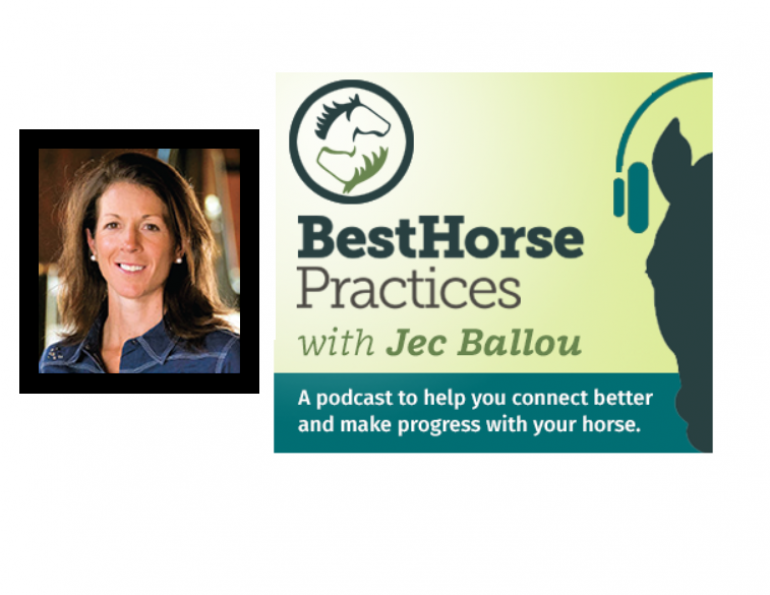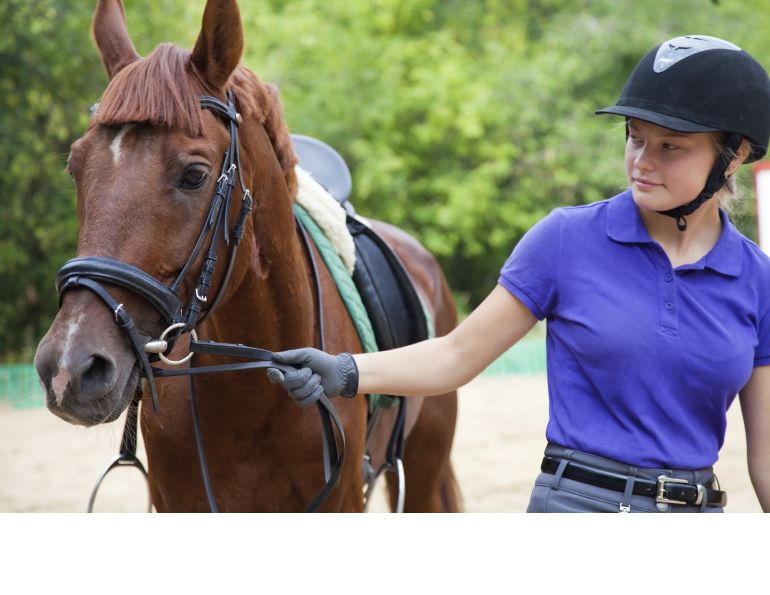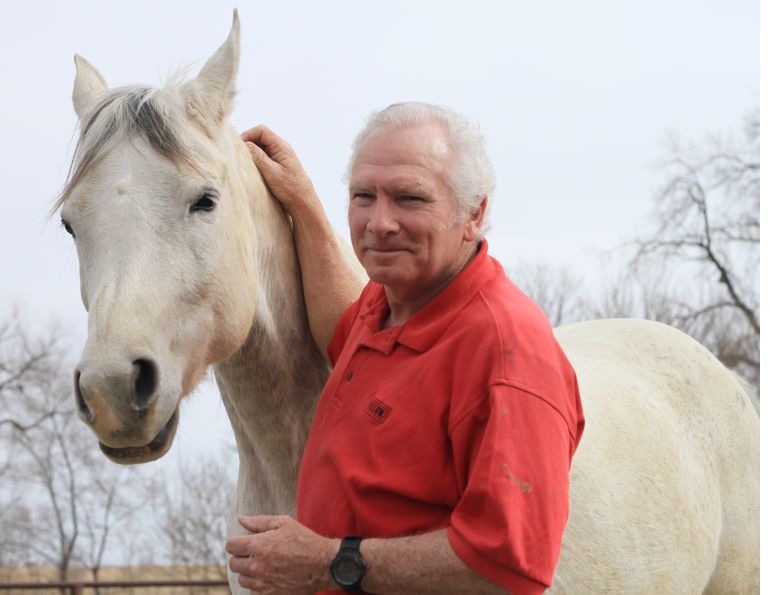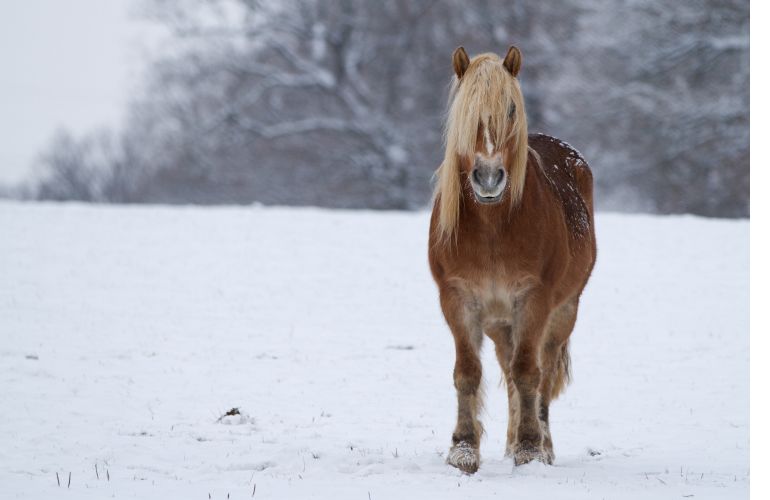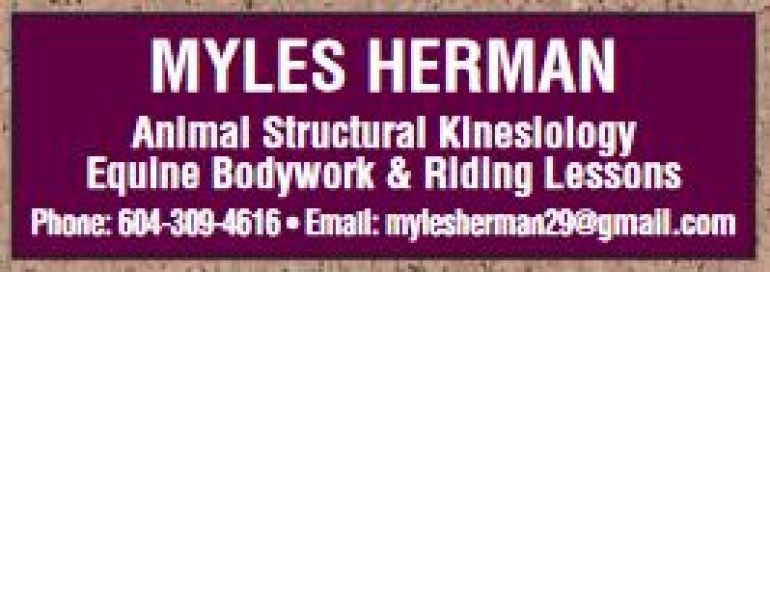By Annika McGivern
"I want to be the highest level of rider possible, but I'm also afraid I won’t live up to my own standards. How do I handle feeling defeated when nothing seems to be working?"
These honest reflections from one of my clients are common themes I encounter regularly as an Equestrian Mental Performance Coach. They also bring back memories of my own experiences as a competitive rider.
What does it mean to truly perform at our best, and how can we consistently bring out the best in ourselves as riders? And when we feel we're falling short, how should we respond?
These are tough questions, but they lie at the heart of how we, as riders, strive to motivate ourselves. If you’re aiming to become the best rider you can be—without getting stuck in cycles of burnout or harsh self-criticism—finding answers to these questions will be crucial to your progress and success.
A Common Misunderstanding About Motivation
Motivation is a feeling — a feeling of wanting to do something — or not. If we are motivated, we want to do it. If we are not motivated, we don’t want to. This feeling is hard to control or predict. Sometimes it’s there and sometimes it isn’t. It’s influenced by sleep, energy, emotions, stress, and circumstances. The common misunderstanding about motivation is the assumption that we need to feel motivated in order to do something.
Related: Breathe Right For Better Horse Riding
We think of motivation as the spark that creates the fire — the fire in this case being a rush of productive action resulting in excellent rides and consistent forward progress towards fulfilling our potential. We place far too much importance on motivation when we see things this way. The result? We worry a lot about motivation, especially when we don’t seem to have it, and we get frustrated and angry with ourselves when it seems that our motivating is lagging.

The quality of your ride depends on deliberate, consistent practice together with good habits and routines that keep you steadily moving forward. Photo: Adobestock/RD-Fitigrafie
It’s important to know that motivation is not a prerequisite for doing something, or for doing something well. Research on human behaviour demonstrates that we are very capable of doing something that we don’t feel motivated to do, and that motivation is actually created through doing or taking action.
Have you ever felt unmotivated to ride, but dragged yourself there anyway because you knew that your horse needed exercise? Have you noticed that usually once you’re there, you’re happy to be there and feel suddenly reenergised and want to ride? This is a perfect example of movement creating motivation. Once you get going and start doing something, the feeling of wanting to do it follows. The quality of our ride doesn’t depend on motivation either, but rather on our focus and ability to manage ourselves mentally throughout the ride. These two mental skills are essential for deliberate practice, which we will discuss next.
Related: How Gail Greenough Made Show Jumping History
Key takeaway — No one feels motivated all the time. Lucky for us, we do not need to feel motivated all the time to work towards our goals consistently and with high quality practice. Instead of relying on motivation, develop strong routines based on consistent practice and compassionate self-discipline.
All Practice is Not Equal
When we are working towards being our best, typically what we are seeking is mastery of, or expertise in, a specific skill set. Research suggests that it takes approximately 10,000 hours of intentional, high-quality practice to master something. It’s important to note that simply showing up for 10,000 hours of practice is not sufficient to guarantee mastery. Quantity of practice matters, but so does quality. How do we stay consistent and keep the quantity and quality of our practice high as we log these hours in pursuit of being the best we can be? Author and researcher K. Anders Ericsson, a Swedish psychologist known as the expert on expertise, has demonstrated through his research that the key is deliberate practice.
Deliberate practice is highly intentional, requires focused attention and self-awareness, and is done with the intention of improving or learning a skill to improve performance. To practice deliberately one must break down the process to be improved into specific skills, then intently concentrate on these skills individually with focused awareness, repeated practice, and feedback until they are fully learned or sufficiently improved. However, to boost our chance of success there is one final step, which is to understand and remove the biggest and most common obstacle that drains our motivation and interferes with deliberate practice — impossible standards.
Related: Horse Riders Are Athletes
Key takeaway — It’s not just about showing up, it’s how you show up. Make the most of your practice time in the saddle with deliberate practice. Break down what you are working on into specific skills and set small goals for each ride. Remember that repetition is key. Look for feedback and apply it to improve as you go.
How Impossible Standards Kill Motivation and Deliberate Practice
- Here are some of the most common impossible standards I see in my work.
- I’m not allowed to make any mistakes.
- I’m only allowed to make a small number of mistakes.
- I’m allowed to make small mistakes, but not big ones.
- I’m not allowed to fail.
- I’m not supposed to work hard (if I’m good enough it will feel easy).
- I need to be perfect all the time.
- My horse needs to be perfect all the time.
- I should know this already.
- I should be able to learn everything quickly.
- My horse should be able to learn everything quickly.
Impossible standards set you up to feel like a failure. They are expectations you set for yourself that are impossible to meet.
Riders who create a lot of impossible standards for themselves struggle more with motivation because they spend a lot of time feeling very negative about themselves, their horse, and their sport. They are also less consistent and skilled at deliberate practice because they struggle to really embrace the learning process of trying something, making mistakes, learning from those mistakes, and trying again. If you are serious about chasing your full potential as a rider, throw out the impossible standard of perfection and refocus on enjoying the process of creating progress. Acknowledge and accept that progress must involve mistakes, failures, setbacks, and periods of slower progress, as these are all important parts of the learning process. This is the only way to develop a healthy relationship with motivation and truly master the art of deliberate practice.

Riders who set impossible standards for themselves often feel negative and lack motivation. Photo: iStock/Elena Gromova
Developing expertise or mastery in riding requires a lot of patience, consistency, and as much deliberate practice as possible to keep the quality of your effort high. Achieving your full potential is a long process and, although the process is an exciting and rewarding one, you cannot expect yourself to feel motivated all the time. Good planning, understanding the bigger picture, goal setting, and consistent deliberate practice while training matters most. Jumping in and doing it will create the motivation, not the other way around. Once this understanding is in place you can get to work creating good routines and habits that will keep you moving consistently forward.
Related: Psychology for the Horse Rider - From Self-Sabotage to Success
Understanding the Meaning of Doing Your Best, Being Your Best
Going for mastery requires a lot of high-quality practice. You do your best work when you fall in love with the process and experience of learning and refining our skill every single time you get on a horse. You are at your best when you are finding the joy in the work and managing yourself and your mistakes well. Get the best out of yourself by being realistic about what it means to work towards high performance and setting high but fair standards for yourself, and by mastering deliberate practice. If you feel you are falling short of the mark, react with compassion, patience, and above all curiosity. Ask yourself if the quality of your practice could be improved.
The rider we met at the beginning of this article has learned that patience, a love of learning, fair standards, and self-compassion make all the difference in keeping his motivation as high as possible. He has also learned not to worry when the motivation isn’t there — he just gets going anyway. By understanding that being the best rider he can be is achieved through daily deliberate practice, he is seeing more consistent progress than ever before.
You can experience a similar shift. Get curious about your own practice habits. How could you apply some of the ideas in this article? What might the first steps be? What specific skill might you focus on in your next ride?
Enjoy!
Related: Tania Zeidler - Inspired by the Love of Horses
Related: How to Build High Performance Belief Systems for Equestrian Athletes
Main Photo: Dreamstime/Donna Kilday





